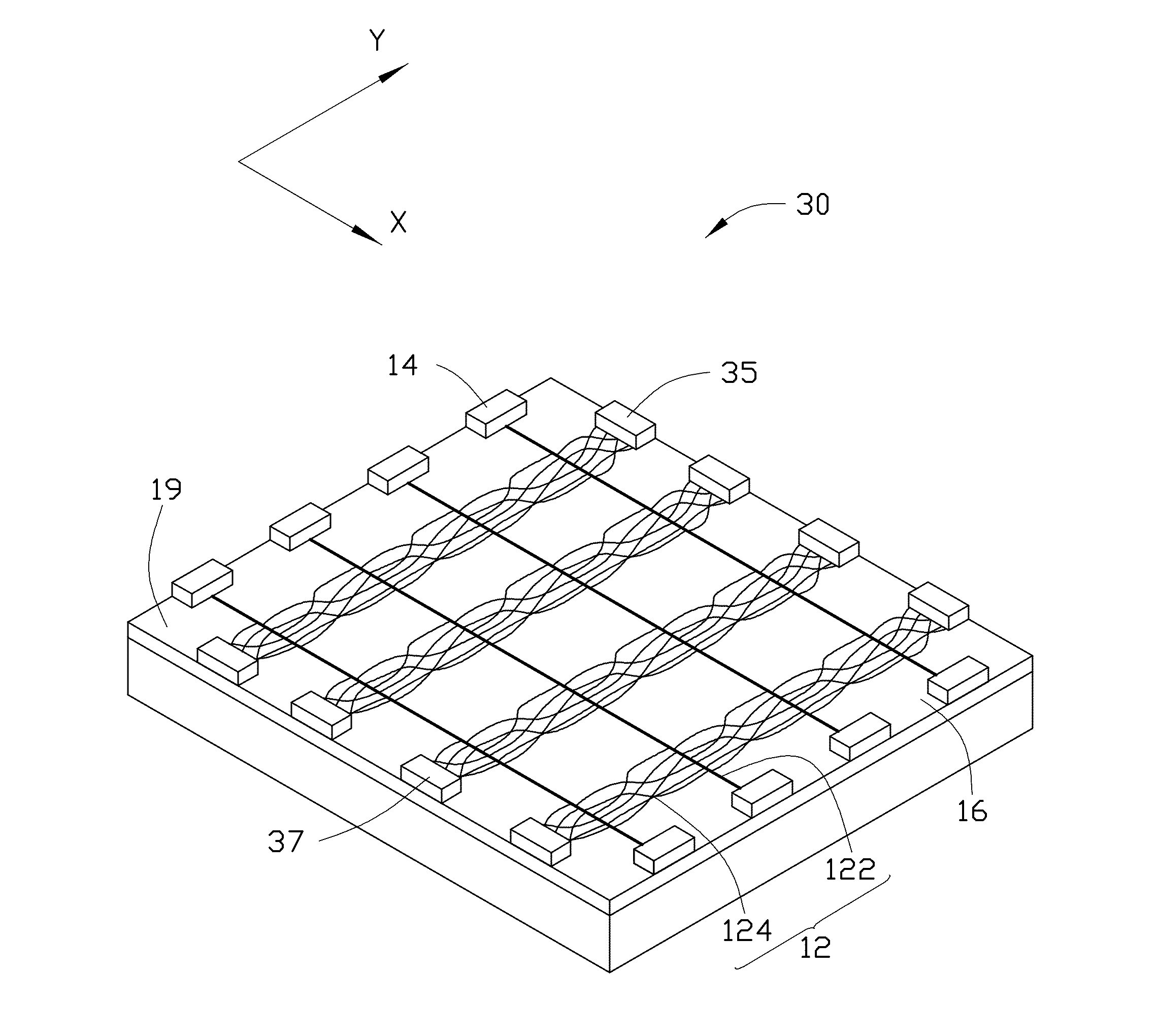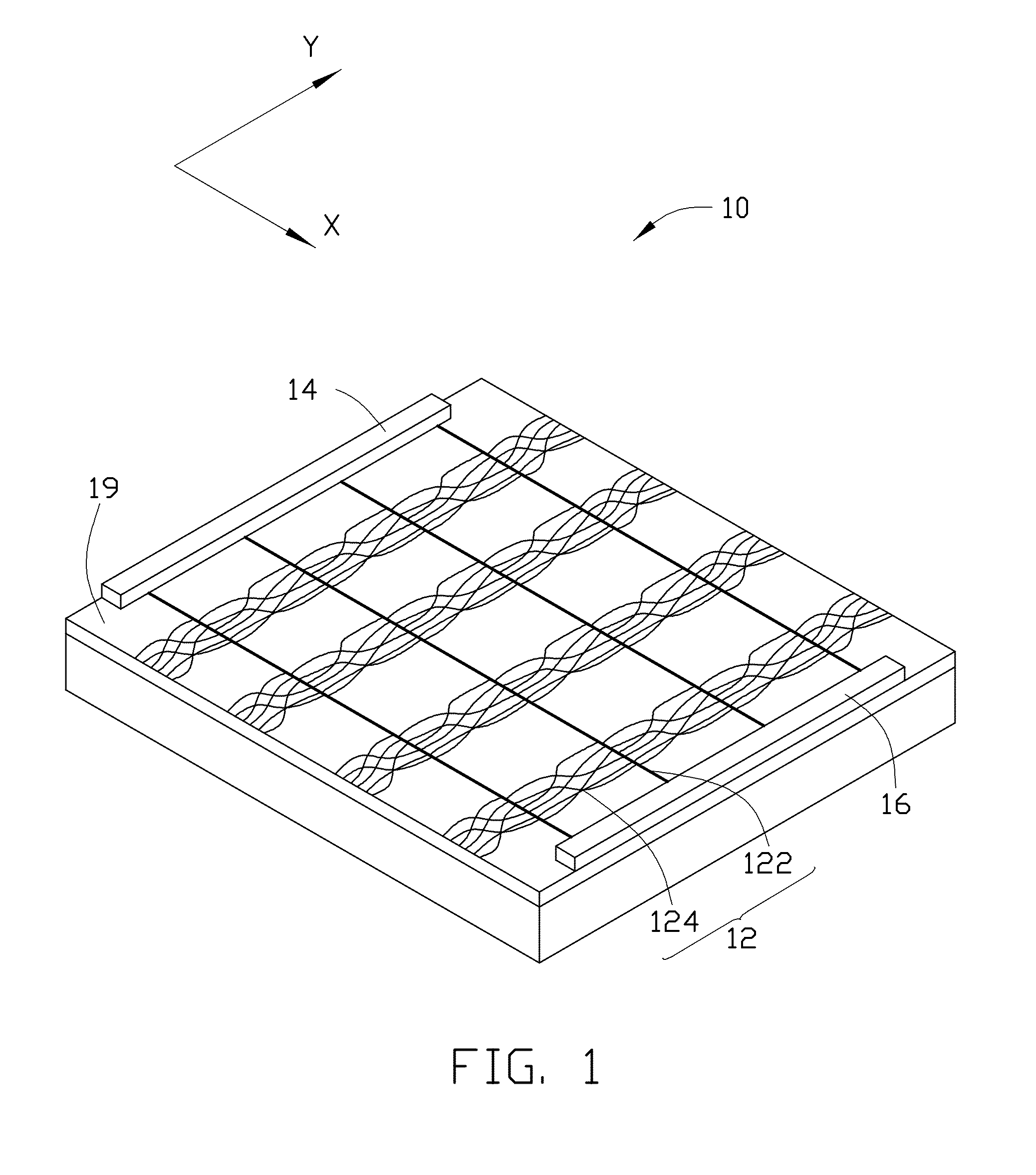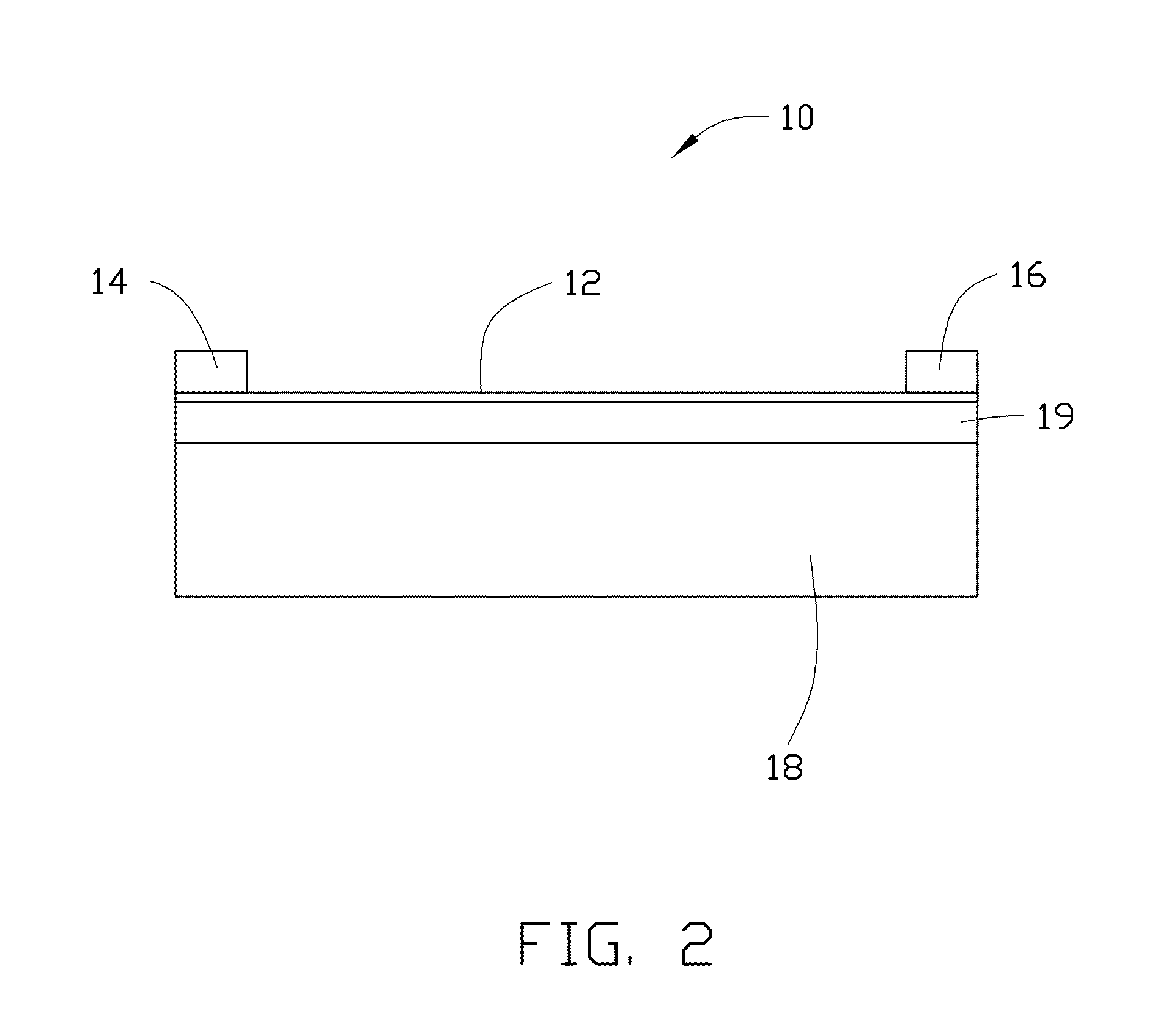Electronic element
a technology of electronic elements and thin films, applied in the field of thin film electronic elements, can solve the problems of difficult folding of conductive layers, affecting the life span of electronic elements, and unsatisfactory mechanical and chemical properties
- Summary
- Abstract
- Description
- Claims
- Application Information
AI Technical Summary
Benefits of technology
Problems solved by technology
Method used
Image
Examples
Embodiment Construction
[0016]The disclosure is illustrated by way of example and not by way of limitation in the figures of the accompanying drawings in which like references indicate similar elements. It should be noted that references to “an” or “one” embodiment in this disclosure are not necessarily to the same embodiment, and such references mean at least one.
[0017]Referring to FIG. 1 and FIG. 2, one embodiment of an electronic element 100 includes a carbon nanotube film 12, a first electrode 14 and a second electrode 16 spaced from the first electrode 14. The first electrode 14 and the second electrode 16 are electrically connected with the carbon nanotube film 12.
[0018]The carbon nanotube film 12 includes a number of carbon nanotube linear units 122 and a number of carbon nanotube groups 124. The carbon nanotube linear units 122 are spaced from each other. The carbon nanotube groups 124 join with the carbon nanotube linear units 122 by van der Waals force. The carbon nanotube groups 124 located betw...
PUM
 Login to View More
Login to View More Abstract
Description
Claims
Application Information
 Login to View More
Login to View More - R&D
- Intellectual Property
- Life Sciences
- Materials
- Tech Scout
- Unparalleled Data Quality
- Higher Quality Content
- 60% Fewer Hallucinations
Browse by: Latest US Patents, China's latest patents, Technical Efficacy Thesaurus, Application Domain, Technology Topic, Popular Technical Reports.
© 2025 PatSnap. All rights reserved.Legal|Privacy policy|Modern Slavery Act Transparency Statement|Sitemap|About US| Contact US: help@patsnap.com



